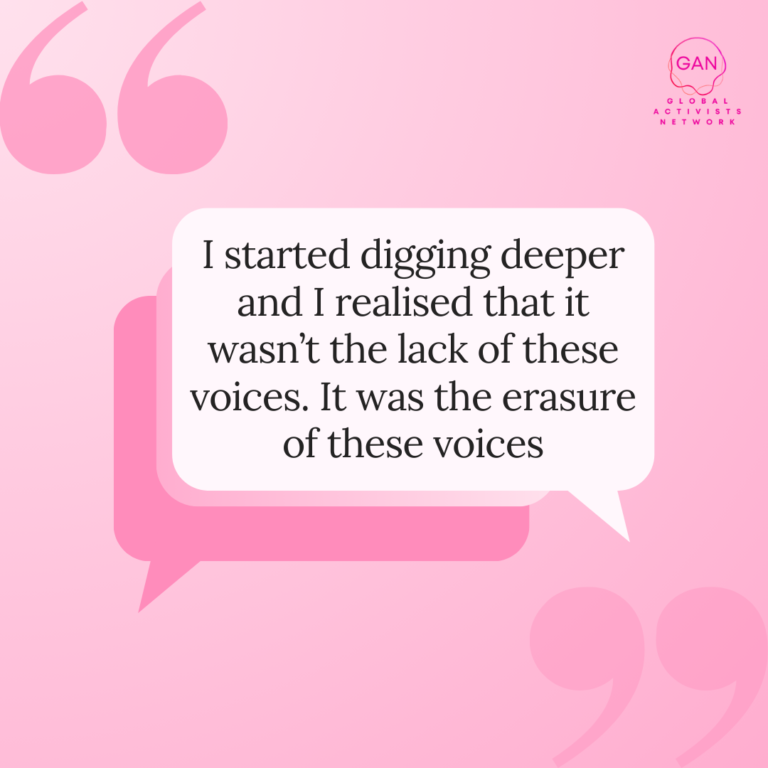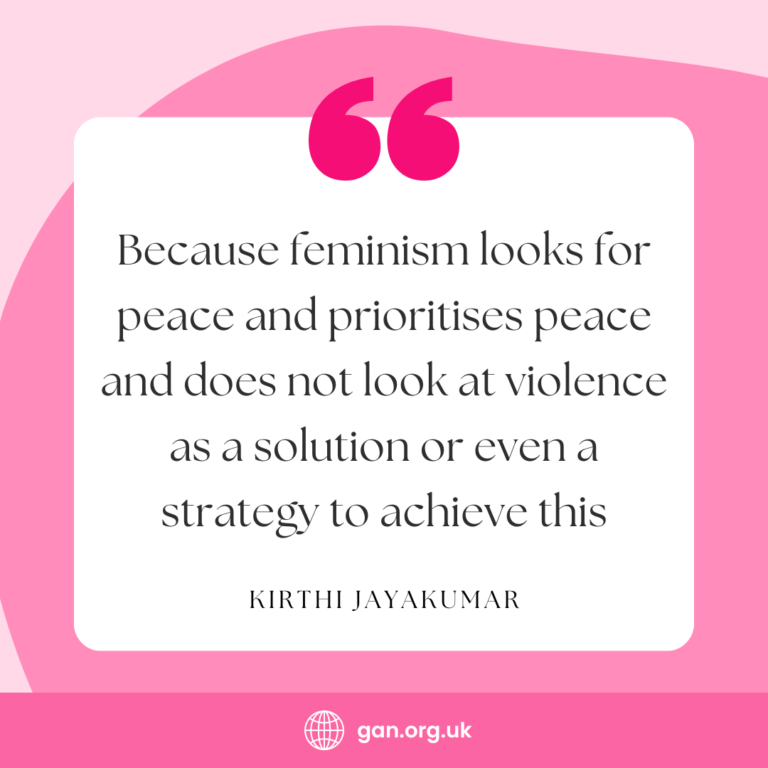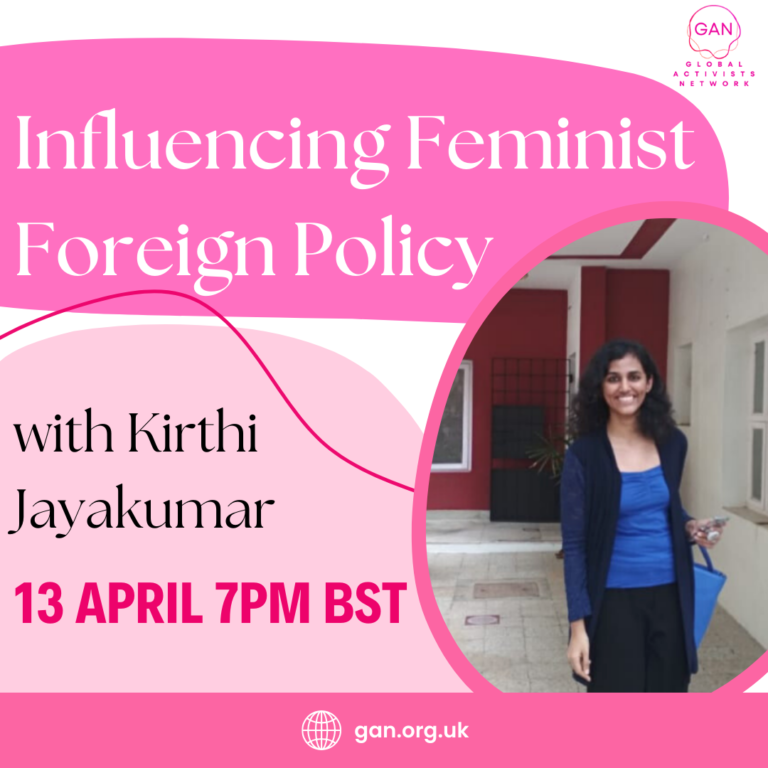



HOW TO INFLUENCE FEMINIST FOREIGN POLICY
On Saturday 13th April, we hosted our April session on influencing feminist foreign policy with brilliant guest speaker Kirthi Jayakumar.
Kirthi is a feminist researcher and conflict resolutions practitioner with extensive experience in women peace and security issues. It was delightful to hear Kirthi share her views on what feminist foreign policy means and how we can influence feminist foreign policy by looking into our own communities and decolonising our perspectives.
“Whose feminism is it? Is it the feminism of the state that is adopting a feminist foreign policy or is it the feminism of the state or the country where that foreign policy will be felt? Because this part of the conversation often gets sidelined. There is no single feminism. We have a few areas that maybe our feminism can align, maybe we have different interpretations or maybe we have lived experiences that inform the way we see feminism”
Kirthi Jayakumar
Kirthi shared valuable insights to how foreign policy is a concept with inherently, deep-rooted colonial histories. For Kirthi, decolonising foreign policy is a key step to a feminist foreign policy that celebrates intersectionality, justice, and healing.
“The first key thing to remember is, especially if we’re coming from the Global South, we come from long histories where feminist foreign policy in the action is part of our cell memory. And I don’t say this with any sense of exaggeration or inflation or presentism about history. But just think back to how women in your communities resisted colonisers, what kind of efforts they played in the freedom struggles of their country. And think about whether those stories continue to be told in fairness, with due respect for these women and the work they put in. And when you get into those spaces, you already see that there are such rich examples of not only resistance and subversion, but also of daring to exist and continuing practices that were elbowed out because the coloniser thought they weren’t worthy of inclusion. So the key step that we all have to think about taking is to start from where we are. Feminist foreign policy are three words that currently are looked like a buzzword, but it’s part of our lived experience. It’s part of who we are. Its part of this very moment that’s brought us into these spaces together to even talk about a thing like decolonisation in a world that is refusing to look at it
Kirthi Jayakumar
Thank you to Kirthi for a truly informative, inspiring, and enlightening session on influencing feminist foreign policy. Our changemakers network can harness these thoughts into their own communities, striving to challenge colonial perspectives, and celebrating women and inclusivity in so doing.
